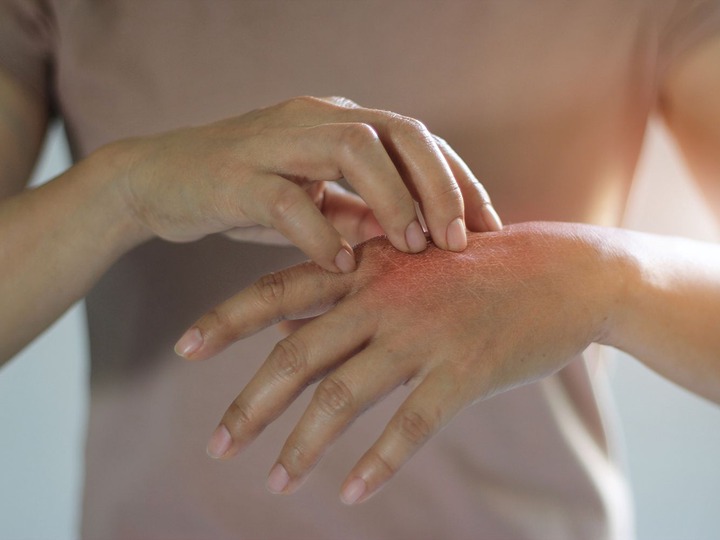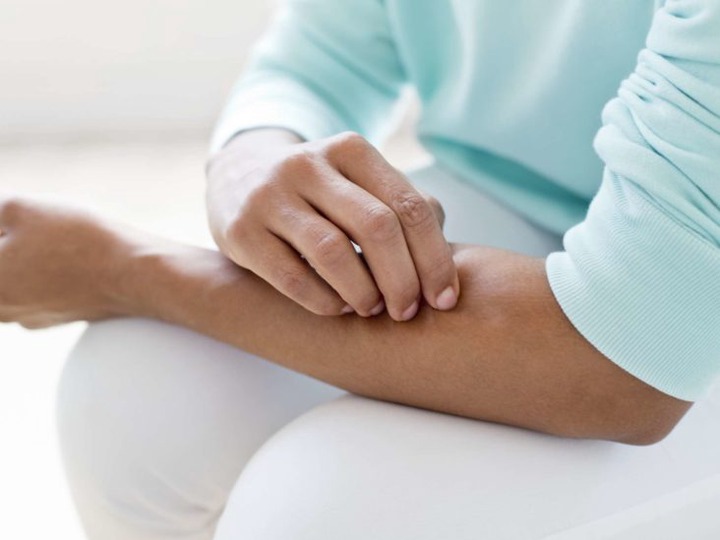Even though your skin is the largest organ on your body, and functions as protection for other organs, it is also susceptible to infections.
What causes Skin infection?
 Skin infections are often caused by a wide variety of germs that induce symptoms ranging from mild to severe. Mild infections can be treated using home remedies or OTC medications. However, severe infections may require immediate medical attention. Read on to learn more about skin infections.
Skin infections are often caused by a wide variety of germs that induce symptoms ranging from mild to severe. Mild infections can be treated using home remedies or OTC medications. However, severe infections may require immediate medical attention. Read on to learn more about skin infections.
What are the kinds of skin infection and how to treat them?
1. Bacterial skin infection:
Thus often begins as tiny rashes that increase over time. e.g boils, cellulitis or impetigo. Usually as a result of bacteria entering your body through a cut or scratch. Getting a scratch or cut won’t necessarily cause bacterial infection but can increase your risk of you having a weakened immune system.
 2. Viral skin infection:
2. Viral skin infection:
These are often caused by Viruses and could range from mild to severe. Viral Skin infections include:
Chicken pox
measles
warts
herpes etc.
 3. Fungal skin infections:
3. Fungal skin infections:
These kinds of infections are caused by fungus and usually develop in damp skin areas that are not easily exposed to light. e.g of fungal infections:
•athlete’s foot
•yeast infection
•ringworm
•nail fungus
•oral thrush
•diaper rash
 4. Parasitic skin infections:
4. Parasitic skin infections:
Parasitic infections can be dangerous as they could spread beyond the skin into the bloodstream. They aren’t life threatening but can be uncomfortable. Parasitic skin infections occur when tiny invertebrates or their eggs burrow into the skin resulting in tiny red bumps that are itchy or extremely painful. e.g, Lice, bedbugs, scabies, larva infestation.
 What are the symptoms Of skin infections:
What are the symptoms Of skin infections:
Symptoms of skin infections differ based on the type. A rash and redness of the skin are common signs. Itching, soreness, and tenderness are some of the additional symptoms you may experience.
According to Maryann De Pietro from healthline, If you have pus-filled blisters or a skin condition that does not improve or worsens, see a doctor. Infections of the skin can travel through the bloodstream, making it worse or life-threatening.

How to treat skin infection:
Treatment is determined by the infection’s source and severity. Some viral skin infections may clear up on their own after a few days or weeks.
Bacterial skin infection can be treated by applying topical antibiotics directly to the skin or with the use of oral Antibiotics. Antifungal sprays and lotions are available over-the-counter to treat a fungal skin infection. Ask your doctor about prescriptions of oral or topical medications if your situation doesn’t improve.
 Additionally, you can treat parasite skin infections with medicinal lotions applied to your skin. Anti-inflammatory drugs, for example, may be prescribed by your doctor to help you feel better.
Additionally, you can treat parasite skin infections with medicinal lotions applied to your skin. Anti-inflammatory drugs, for example, may be prescribed by your doctor to help you feel better.
Home remedies for skin infection
According to report, paying attention to your skin infections at home can help relieve symptoms. To relieve itching and irritation, apply cold compresses to your skin many times a day. Take over-the-counter antihistamines.
Apply topical creams and ointments. Lastly, be sure to speak with your doctor on what to do.

 Comments and Issues1 week ago
Comments and Issues1 week ago
 Comments and Issues1 week ago
Comments and Issues1 week ago
 Health7 days ago
Health7 days ago
 Comments and Issues1 week ago
Comments and Issues1 week ago
 Education1 week ago
Education1 week ago
 Football7 days ago
Football7 days ago
 Aviation1 week ago
Aviation1 week ago
 News4 days ago
News4 days ago

